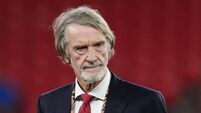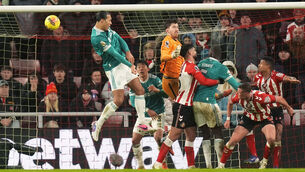Alan Shearer: I doubt I’ll go back to management

“Well done, big man,” Shearer says compassionately, as I stumble through the last few box jumps of a four-minute block.
He shows how it’s done; on the screens his heart-rate well in the red zone; ploughing into his work as if charging for the back stick, eyes fixed for that perfect flight.











